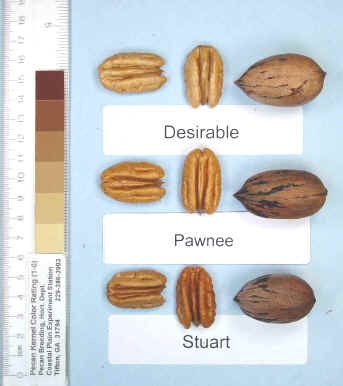
Pecan producers will soon be planting trees throughout the Southeast. But first, growers must decide what variety they’re going to plant.
Scab susceptibility is the No. 1 factor that should influence what variety producers plant this year, according to Shane Curry, University of Georgia Appling County Extension Agriculture and Natural Resources agent.
If growers are going to plant a variety like Cape Fear, it is going to require a high input of spray applications to protect against scab disease. If producers want low input varieties, they can choose Avalon, Excel or Lakota. Those varieties don’t require as much spray applications.
Producer’s Preference
It’s just a matter of how much time a grower wants to devote to taking care of their trees and whether they possess the spray equipment to make the necessary applications.
“They definitely have a lot they have to consider. Or I guess really, one thing in particular, and that’s are they going to be able to spray as far as what we would say a high input of sprays from a fungicide standpoint or are they not going to be able to do that?” Curry said.
“Obviously, if somebody is planting 50 trees, they’re probably not going to go buy a $20,000 or $30,000 sprayer, and some of those even cost more than that. Money’s just not going to work out on the end in small acres. A lower input variety would be more of the way to go. If someone is set up to spray, meaning they already have them or they’re going to put in enough to justify the equipment, they’ve got a few more options.”
Early Varieties
Lakota and Pawnee are the two varieties that produce a crop the earliest, which might generate a higher market price. However, Pawnee is very susceptible to scab disease, so it will require a high input spray program.
“If pecan prices are high and quality is great, we can offset those costs. Every year (though) that’s not the case,” Curry said.
Curry said planting is normally done during December and January when the trees are dormant.









